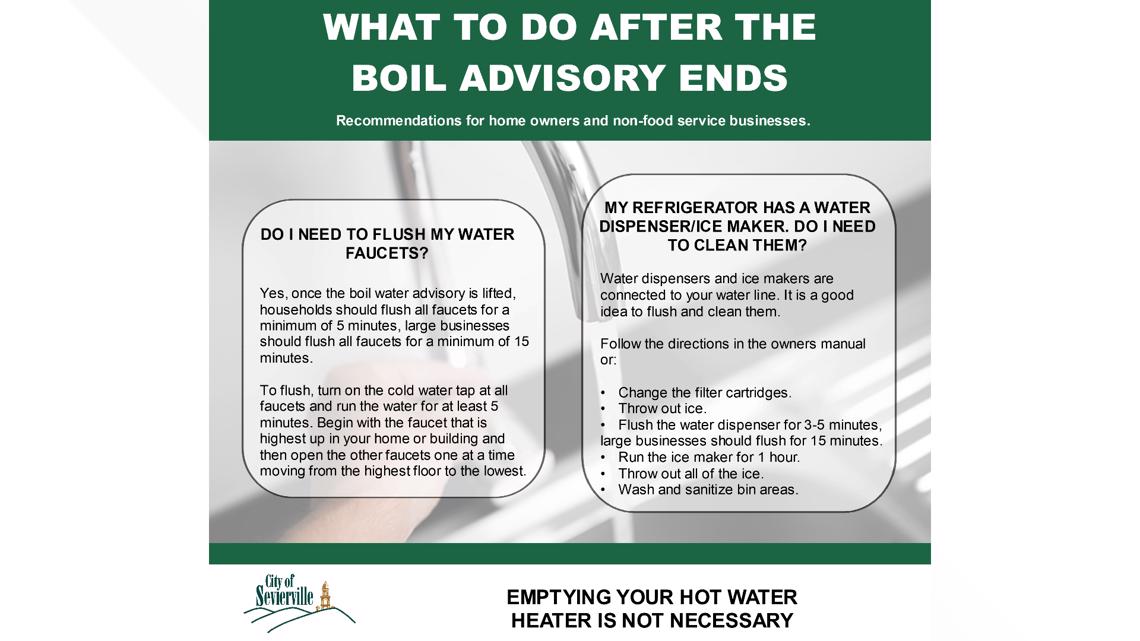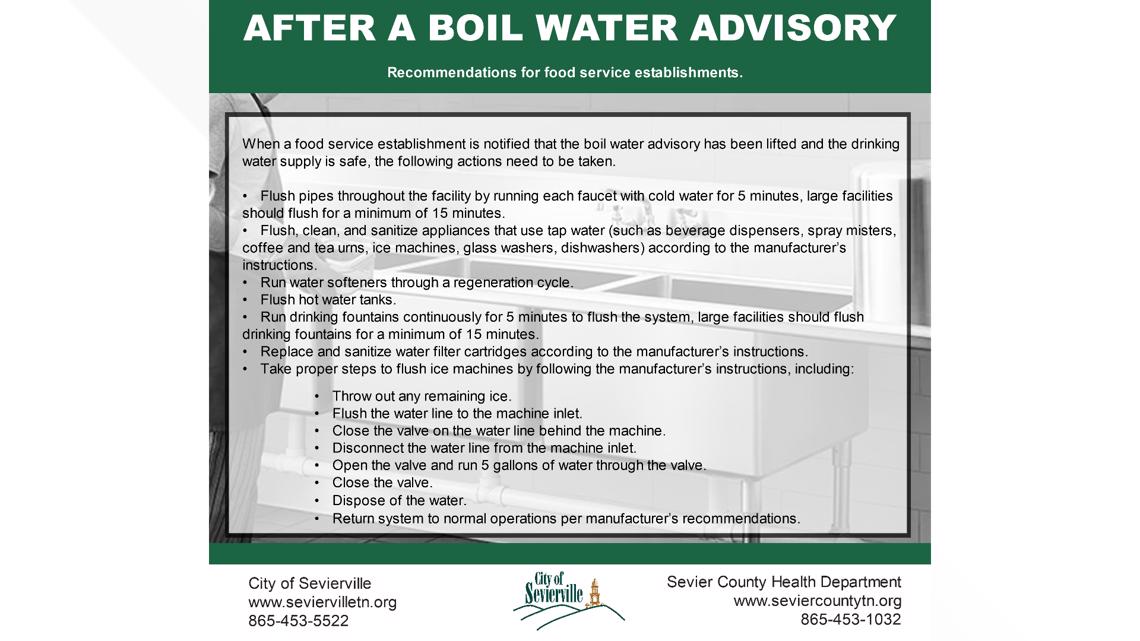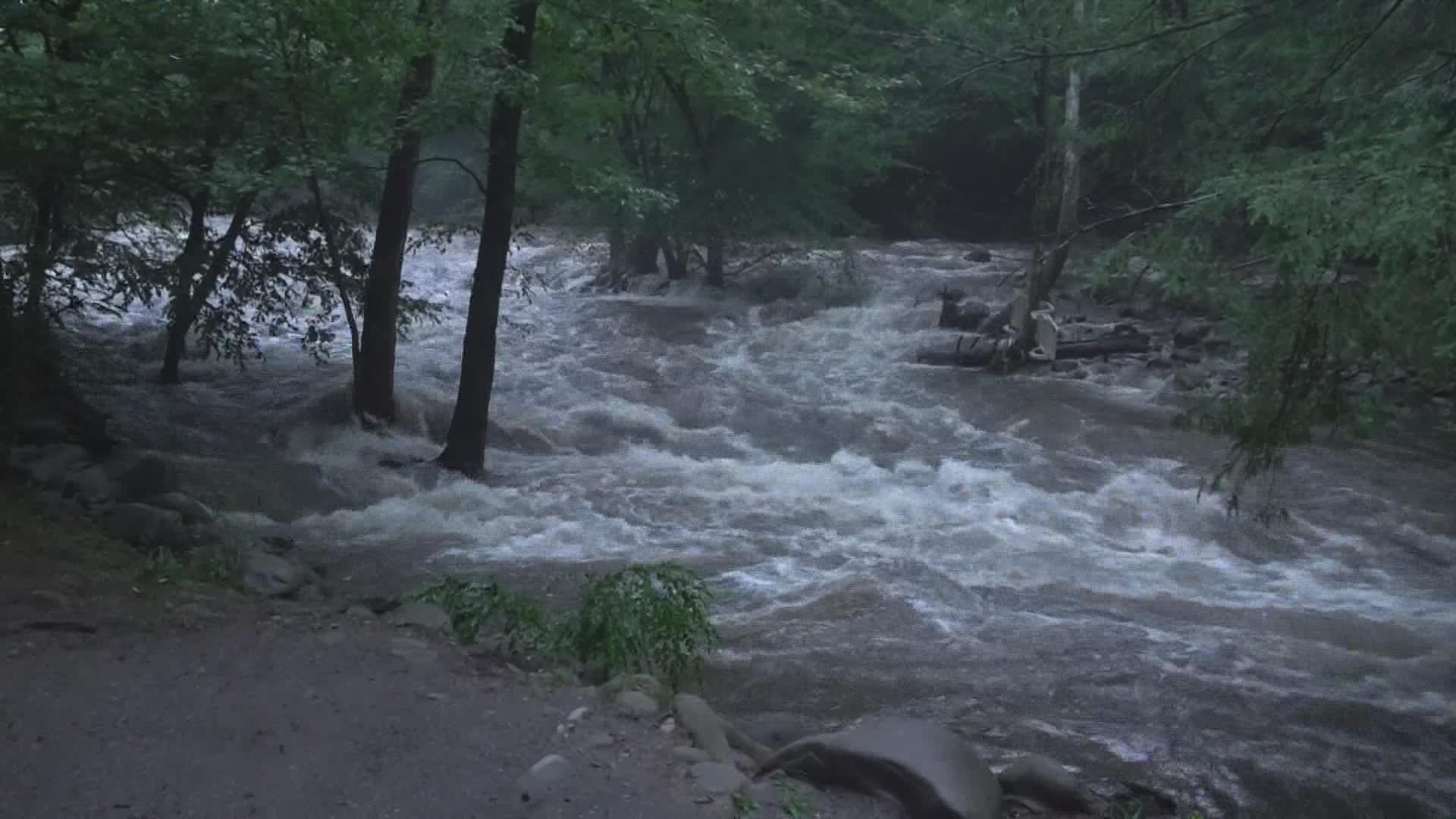SEVIER COUNTY, Tenn. — UPDATE (July 15):
The Sevierville Water Systems drinking water warning/boiling advisory is rescinded, according to the city of Sevierville. All water testing is negative for harmful contamination.
It is recommended that water lines be flushed to ensure that fresh water with appropriate levels of disinfectant is present since unused water was in the water lines for an extended period of time, according to a release.
The CDC advises homeowners and business owners to take certain measures after a boil water advisory has been rescinded:




Original Story
People in Sevierville and parts of Sevier County are asked to boil their drinking water until further notice after the city of Sevierville said its water system lost pressure in the distribution system.
The notice applies to all Sevierville Water System customers and to Sevier County Water System customers in the area of Sims Road, Flat Creek, Allensville, Lane Hollow, Thomas Cross Road, Boyds Creek and Jayell Road.
According to a release, the City of Sevierville Water system lost system water pressure, mainly at higher elevations, due to an interruption in treatment plant operations on Wednesday, July 12. This loss of pressure in the distribution system may cause backpressure, backsiphonage, or a net movement of water from outside the pipe to the inside through cracks, breaks, or joints in the distribution system that are common in all water systems.
Sevierville Water Systems employees collected multiple water samples on Thursday and are awaiting test results. The results will let them know if there is any contamination in the system. An announcement will be made Friday afternoon after the results have been reviewed. New guidance will be provided to customers at that time, according to city officials.
The severe storms and flash flooding on July 12 carried significant debris to the water treatment plant intake and caused a blockage of intake filters and disrupted plant operation capabilities, according to a release. Employees have been working diligently to clean the intake filters and restore water service and system pressures.
Such a system failure carries with it a high potential that fecal contamination or other disease-causing organisms could enter the distribution system, posing an imminent and substantial health endangerment to persons served by the system, according to the city.
The city said it will inform residents when they no longer need to boil their water. For more information, contact Sevierville Water Systems during normal business hours on Monday to Friday from 8 a.m. to 5 p.m. at 865-453-5522, or online.
It issued the following recommendations:
- Bring all water to a rolling boil for at least three minutes, and let it cool before using, or use bottled water.
- Boiled or bottled water should be used for drinking, making ice, brushing teeth, washing dishes, and food preparation until further notice. Boiling kills bacteria and other organisms in the water.
- All stored water, drink or ice made recently from this supply shall be discarded.
The city said inadequately treated water may contain disease-causing organisms including bacteria, viruses, and parasites, which can cause symptoms such as diarrhea, cramps, nausea, headaches, or other symptoms. They may pose a special health risk for infants, young children, some of the elderly and people with severely compromised immune systems.
The symptoms above are not caused only by organisms in drinking water, according to a release. If you experience any of these symptoms and they persist, you may want to seek medical advice. People at increased risk should seek advice about drinking water from their health care providers.
The water treatment plant is operating normally, including the release of treated water into the system.

